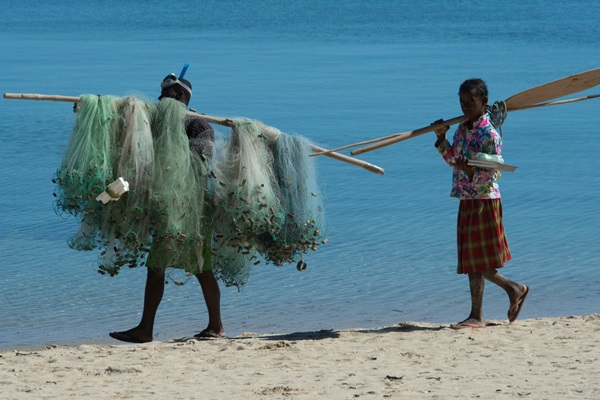
Rome - FAO and Slow Food International have launched a new partnership to help mountain and island communities develop more resilient economies and create conditions that improve the livelihoods of local people.
Under a three-year Memorandum of Understanding (2022-2024), the two organisations will work together to support smallholder farmers, forest dwellers and fisherfolk living in these fragile ecosystems, to safeguard their biodiversity and agrobiodiversity. In particular, the partnership will work to develop more inclusive agrifood systems and improve market access and value chains for small-scale producers.
FAO Deputy Director-General Maria Helena Semedo said: “By promoting inclusive and sustainable agrifood systems, this partnership will help support these vulnerable communities to improve their local economies and livelihoods, adding greater value to their products and traditions while preserving valuable natural resources.”
Slow Food President Carlo Petrini said: “This partnership will help to enhance agricultural high value chains while preserving local communities’ cultural diversity and to promote sustainable tourism as a pathway for the use and conservation of traditional gastronomy and food biodiversity.”
Slow Food is an international, non-profit grassroots organization that aims to promote quality food produced and distributed in an environmentally and socially sustainable way. It has over 100,000 members worldwide and it active in 150 countries.
Focus on fragile ecosystems
Under the new agreement, the two organisations will work in a coordinated way on several initiatives to enhance agricultural value chains in fragile ecosystems. They will promote agroecology as a viable solution for the sustainable production of food, supporting family farmers and small-scale fisheries.
FAO’s Mountain Partnership Secretariat and Slow Food will provide technical assistance, capacity building, communication and organise events to raise awareness. There will be specific initiatives to support small-scale artisan fisheries worldwide and coffee and rice producers in Madagascar. The Mountain Partnership Secretariat will also support other Slow Food best practices, including The Cooks’ Alliance, The Coffee Coalition and Slow Travel.
The two organisations will also focus on supporting gender sensitive sustainable tourism models in fragile ecosystems, increasing awareness of the United Nations Decade of Family Farming and promoting the value of Globally Important Agricultural Heritage Systems and of plant genetic diversity.
FAO and Slow Food have been working together to support rural communities and safeguard diversity since 2013.